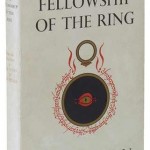A Sad New Year For Copyright
The new year has just come, and a new year is usually filled with optimism and renewal. But certain things should not be renewed, and due to an unfortunate law passed in 1978, and amended 20 years later in 1998, they have been.
This is in reference to the 1978 passing of the (US) Copyright Act of 1976, which extended the maximum 56 years in which works could be copyrighted (from the date of publishing), to 70 years from the author’s passing, and the 1998 amendment that extended the original 56 years to 95, for works published between 1950 and 1963.
Without these two changes, works published in 1954 would have just become public domain on January 1st, and it includes books such as The Lord of the Flies, the first two Lord of the Rings books, Samuel Beckett’s Waiting for Godot, Dr. Seuss’ Horton Hears a Who!, Tennessee Williams’ Cat on a Hot Tin Roof; and movies such as On the Waterfront, Hitchcock’s Rear Window, Akira Kurasawa’s Seven Samurai, Disney’s 20000 Leagues Under the Sea and many more distinguished titles. We would then be able to read these books on our iPads and Kindles, or download and watch these movies on our computers, and all legally, without the need to pay.
With the original laws, authors would automatically have a 28 year hold on the copyright, which then can be renewed once for another 28 years, to 56 years. But now, we’ll have to mostly wait until 2050 until these works reach public domain.
But is this really a bad thing?
Copyright was designed to balance the need to protect the copyright holder’s interests in earning revenue from his or her works, and also the need for cultural preservation and enabling greater access to the classics. This prevents obscure works from being lost forever due to greedy copyright holders, and it also allows the greatest works of a past generation to be enjoyed in the public domain, for the benefit of all. But the ever increasing bias towards the copyright holder, means that the more noble, and arguably more important needs of society and civilization are being ignored.
But what would the likes of Tolkien, or Beckett or Hitchcock think of the current laws. Surely, they would be pleased that their works are “protected” for that much longer, and that if they were still alive today, they would still be able to rely on copyright revenue from these works. But according to the Copyright Office’s own stats for the pre-1978 days, only 7% of book authors renewed their copyright after the 28 year limit, and for other forms of works, only 15% bothered to do so. Had the copyright laws not been changed in 1978, it’s very likely that 85% of works produced since 1982 would now be in the public domain! But instead, we have to wait until 2077.
And instead, it’s the revenue of copyright holders that are being protected ahead of cultural interests. Except that facts shows us revenue, especially for books, dry up very quickly after the original publication for most works. And so works disappear into the void, and become known as orphan works – works that are still copyrighted, but not available commercially since the cost of publication and distribution greatly outweighs any potential revenue that can be derived from them. And so everybody loses.
Further reading:


January 9th, 2011 at 7:51 pm
[…] Let’s star with copyright news. I attempted to destroy the optimism gained from the new year by writing about what could have been, had the powers that be not made the the financial aspect of copyright more important than the social aspect, in my piece titled A Sad New Year For Copyright. […]